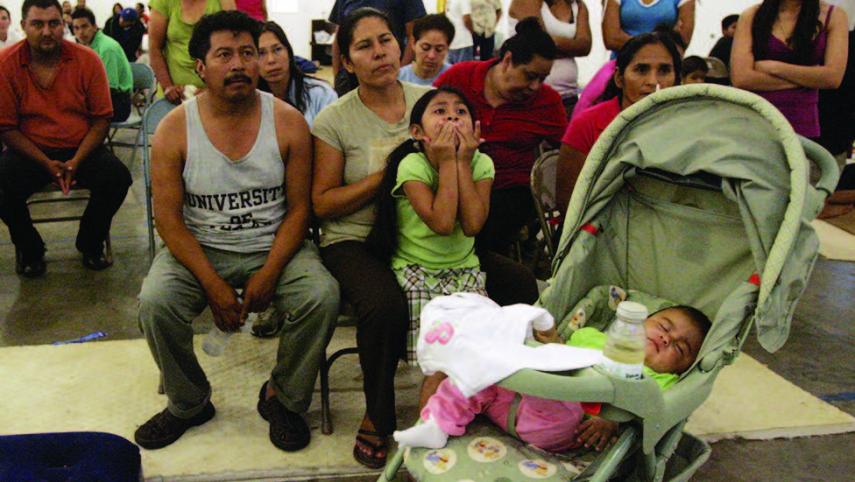Natural Disasters and Immigration

Before Hurricane Ike struck the Gulf Coast of Texas on September 13, 2008, the federal government had already declared a “hurricane amnesty” for more than 1.5 million illegal immigrants—mostly
Hispanics—living in the state.
That meant no ID checks at shelters and no border patrol checkpoints, part of a “humanitarian mission” designed to evacuate people as quickly as possible. However, deportation fears remained and, consequently, many Hispanics bore the brunt of the storm. Hurricane Ike left behind nearly $30 billion in damage before becoming the largest search and rescue operation in American history.
It was an unfortunate consequence, says Arnold Spokane, a professor of counseling psychology who had visited the Austin, Texas area to provide mental health services following an earlier hurricane.
“It’s a cultural phenomenon, and one that is often misunderstood,” says Spokane. “I’ve worked with a lot of Hispanic survivors in the days after major Gulf storms, and almost all of them raised the fear that the Red Cross and similar aid agencies would report their illegal status to federal officials. It wasn’t true, but that was their perception.”
Hurricane Ike was one of an unexpectedly high number of natural catastrophes to have hit America in the past few years. In each instance, billions of dollars and thousands of volunteers flooded the hard-hit areas in the hope that communities would more easily rebound.
But the similarities end there. For counseling psychologists, the recent onslaught of natural disasters has inspired a new approach to solving the intricate web of cultural, political and social norms of suffering communities.
“A human community is a sensitive social ecosystem—a complex network of social norms, race, gender and class status,” says Arpana Inman, associate professor of counseling psychology. “What works for one community may have the opposite effect in another. So when we try to manage global recovery efforts, we need to first understand that cultural mistrust is a continuing problem in disaster response, especially for the most vulnerable and at-risk populations.”
That means that the role of counseling psychologists in disaster relief could change substantially. In fact, that’s already happened. As a result of the lessons learned from Hurricane Katrina, the Office of Minority Health at the U.S. Department of Health and Human Services has created a new interactive, Web-based Cultural Competency Curriculum for Disaster Preparedness and Crisis Response.
“Counseling psychologists, by nature, need to learn how to adapt,” says Inman. “After Katrina, we began to train and mobilize locals as paraprofessionals, giving them the skills and knowledge to help physically rebuild their communities.
“Not only do we provide immediate support following a disaster, but we work hard to restore services and work with community partners to guarantee that the appropriate assistance is given,” Inman says.
“It’s a new way to ensure social justice.”
“I’ve worked with a lot of Hispanic survivors in the days after major Gulf storms, and almost all of them raised the fear that the Red Cross would report their illegal status to federal officials. It's not true but what they believed."
Dr. Arnold Spokane